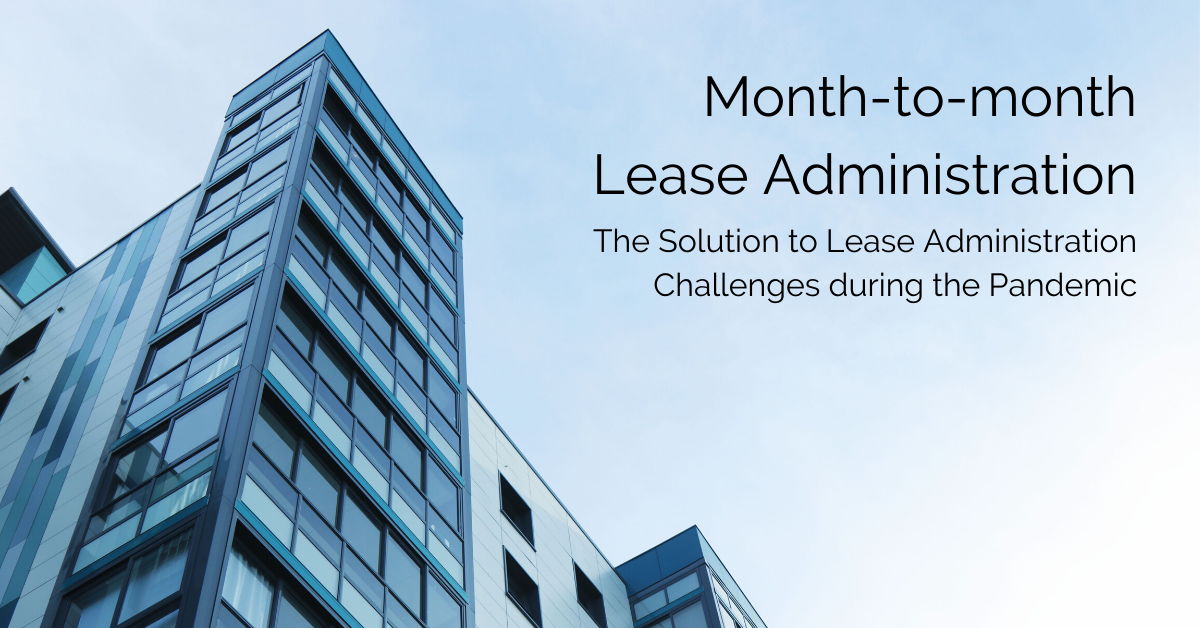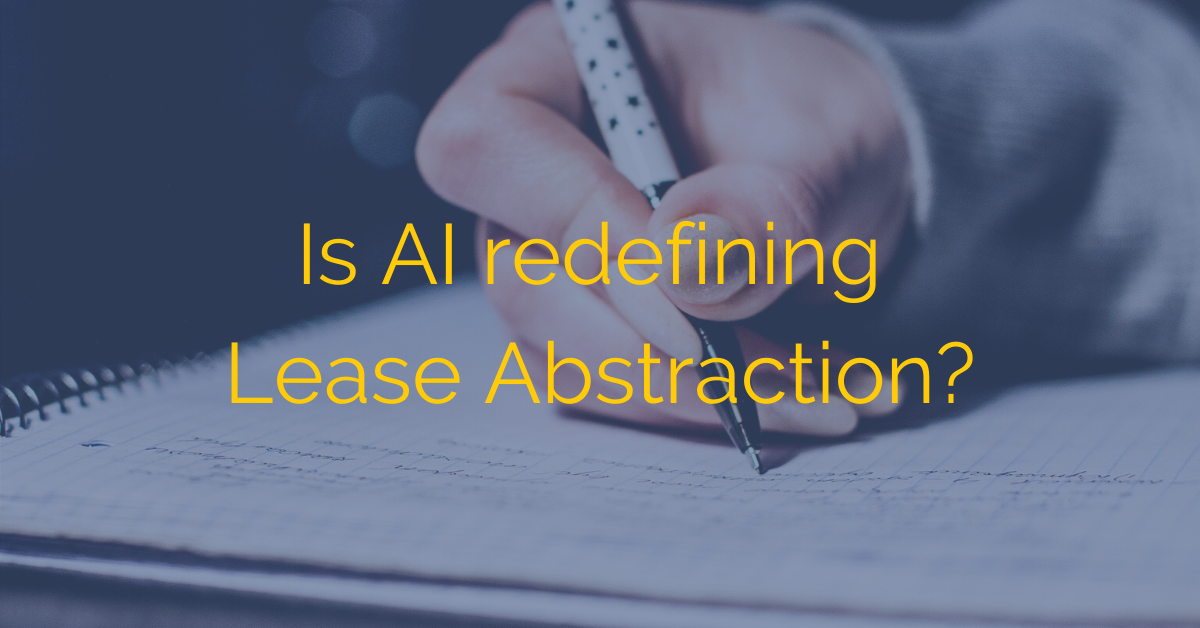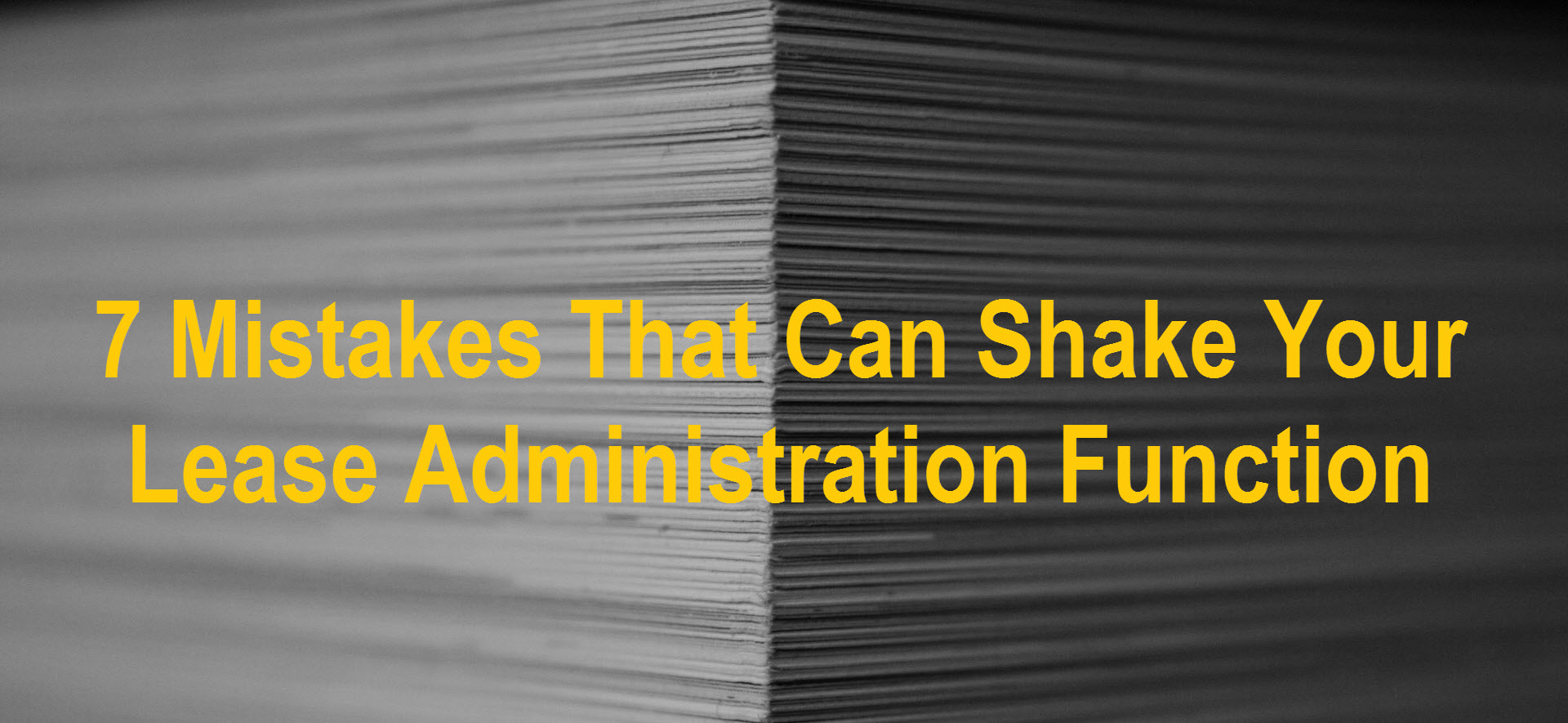Lease administration is a critical function of CRE companies and the work involved is resource-intensive – both in time and the unique skills required. With the implementation of the new accounting standards and with the potential for significant financial losses due to missed dates or improper invoicing and payments, it is of strategic importance to define and implement a lease administration process that is robust and highly effective.
Running a lease administration function successfully is no easy task. In this blog, we will look at 5 best practices that are fundamental to a high-performing lease administration function.
Lease administration software
An effective lease administration process involves real-time access to lease information that will help make informed decisions. Having the right lease administration software in place can be a game-changer. At a bare minimum, the software will allow key data to be stored in a central repository and provide critical date monitoring and valuable reporting capabilities. The right lease administration platform will save time and money, and facilitate process flow optimization. There may be short-term pain to implement new software, however, it will generate long-term gains that will make it well worth the efforts.
There are several excellent lease administration software platforms available and the best ones are partnering with clients to ensure the success of implementations. If a software platform is already in use, continuous assessment of the software is required to ensure it is catering to the increasing needs of the company.
Lease administration process
Understanding the entire lease life cycle, prioritizing business-critical elements of leases, and determining the optimal process to execute all the tasks involved is critical for the lease administration team. To accomplish this, a cross-functional team (legal, operations, accounting, finance and lease administration) should be set up so that all the stakeholders can work with the lease administration team to view the lease portfolio in its entirety, understand and prioritize business needs, and finalize the lease administration game plan. The goals of the process should be to improve visibility and efficiency, support business decisions, reduce costs, reduce risks, and ensure compliance with the accounting standards.
Companies who have outsourced their lease administration function should have identified the project and process deliverables with their service providers before the commencement of the project. If this hasn’t been done thoroughly, it should be a high priority task to complete in the near term.
Lease abstraction process
Lease abstraction is the process of abstracting critical data points from the lease agreement and as such, this process is foundational to the success of any lease administration team. An accurate abstraction means the business decisions dependent on the lease abstract are on solid footing. The opposite holds true as well. Bad abstract, bad underlying support for key decisions.
As important as the lease abstraction process is, it is also time-consuming and tedious. High performing lease administration teams help key stakeholders understand and value the time commitment to completing the lease abstraction process accurately and thoroughly. The process should include evaluating the lease agreement, abstracting the lease data into a concise format, checking the abstracted data for errors, and storing the data in a centralized repository that can be accessed at any time.
The lease abstraction process lends itself well to outside help, especially when there is a big push to abstract all leases in a limited timeframe (i.e. software change, accounting standard compliance project, etc.). Leading service providers who specialize in lease abstraction and administration can execute data abstraction projects, including multi-language lease translation, with ease; allowing limited internal resources to focus on the many deliverables that rely on the abstracts.
Documenting & evaluating the lease administration and lease abstraction processes
While less glamorous than some of the other best practices, documentation and on-going evaluation of processes are important to the long-term success of lease administration. As things change and the business grows, maintaining and documenting critical processes ensures the integrity and repeatability of key activities, of which lease administration has many.
The scope and responsibility of the lease administration function has grown significantly in the past few years and as a result, there is a need for maintaining clarity in communications with key stakeholders, including the documentation and ownership of the underlying processes. Utilize the cross-functional team to challenge the current processes and examine how they can be further refined and optimized. Assign process owners to monitor and continually evaluate the processes and workflows, as well as documenting them. Through documentation, each workflow can more easily be distinguished and evaluated for redundancy, gaps, and further refinement, which is vital to the long-term success of the lease administration function.
Skilled Human Resource
Having a person with the right skills and right attitude for the job is a best practice for any function. Lease administration isn’t any different. In fact, the unique blend of skills for lease administration just means it’s more important and more difficult to accomplish. Lease abstraction, document management, CAM reconciliation, accounting compliance requirements, operating expenses review, and occupancy cost analysis are some of the top technical skills required in a lease administrator. Soft skills include attention to detail, adaptability, and an ability to move quickly and intelligently from the weeds to the executive level view of the lease portfolio. High performing lease administrators are irreplaceable and a high return on investment to the organizations they serve. Whether hiring directly or sourcing exceptional talent through a leading service provider, having the right mix of skills and attitude in the lease administration function is of critical importance to the success of the organization.
As you evaluate your resource needs, it is important to anticipate and prepare for any eventualities like an increase in the number of leases in the portfolio, employee attrition, changes to the accounting standards, and training requirements that will affect the smooth functioning of the lease administration department.
At RE BackOffice, Inc. we know the importance of lease abstraction and administration. Since 2006, our clients have relied on us as key partners; helping them to achieve success. At RE BackOffice, your back office…is our front office.





